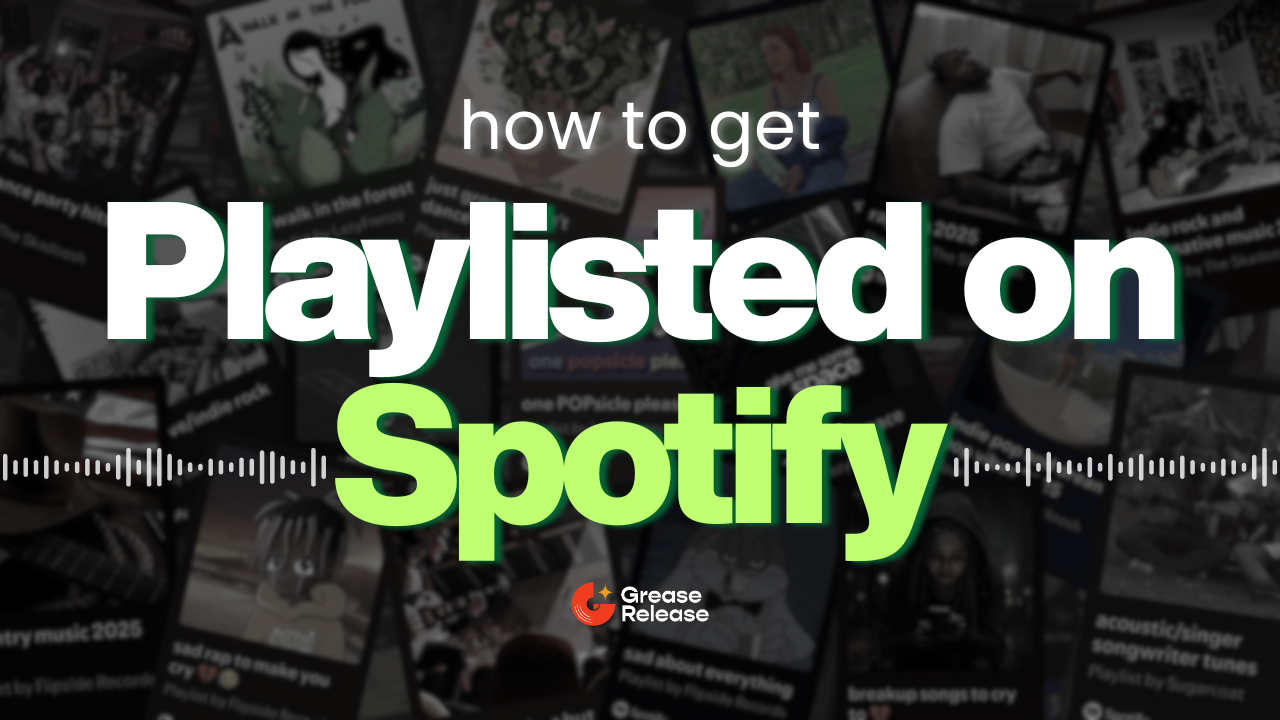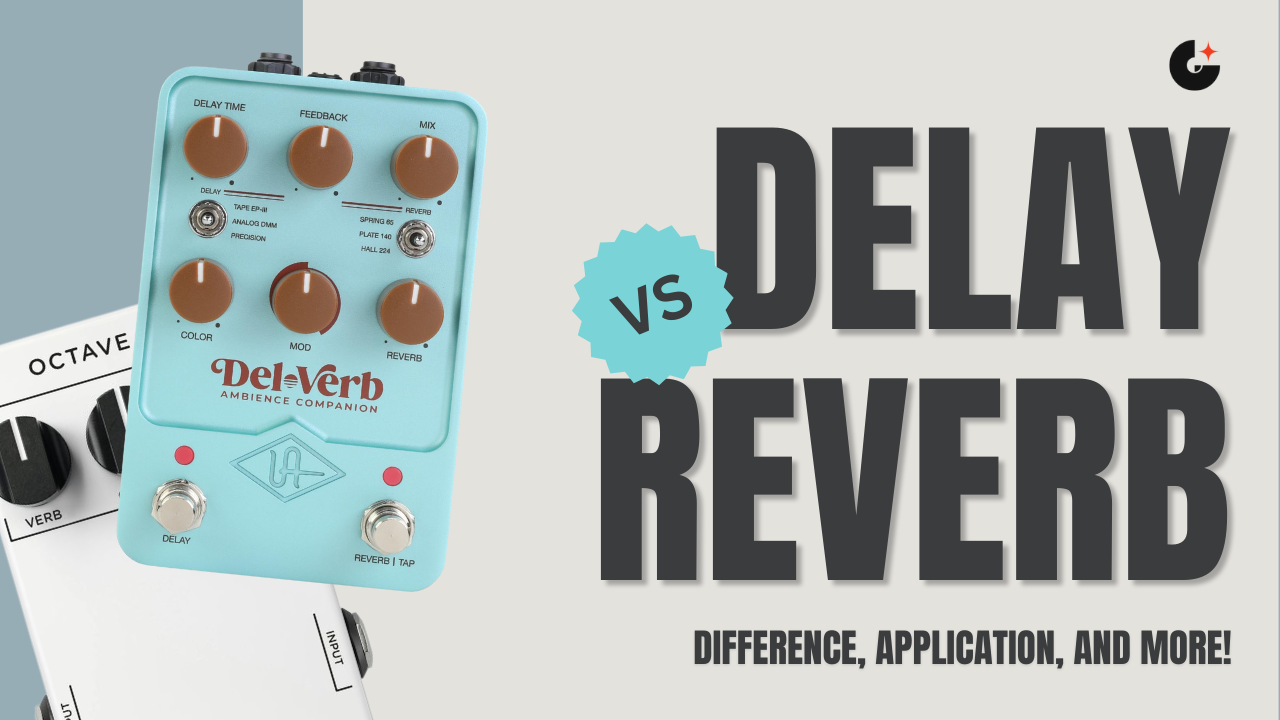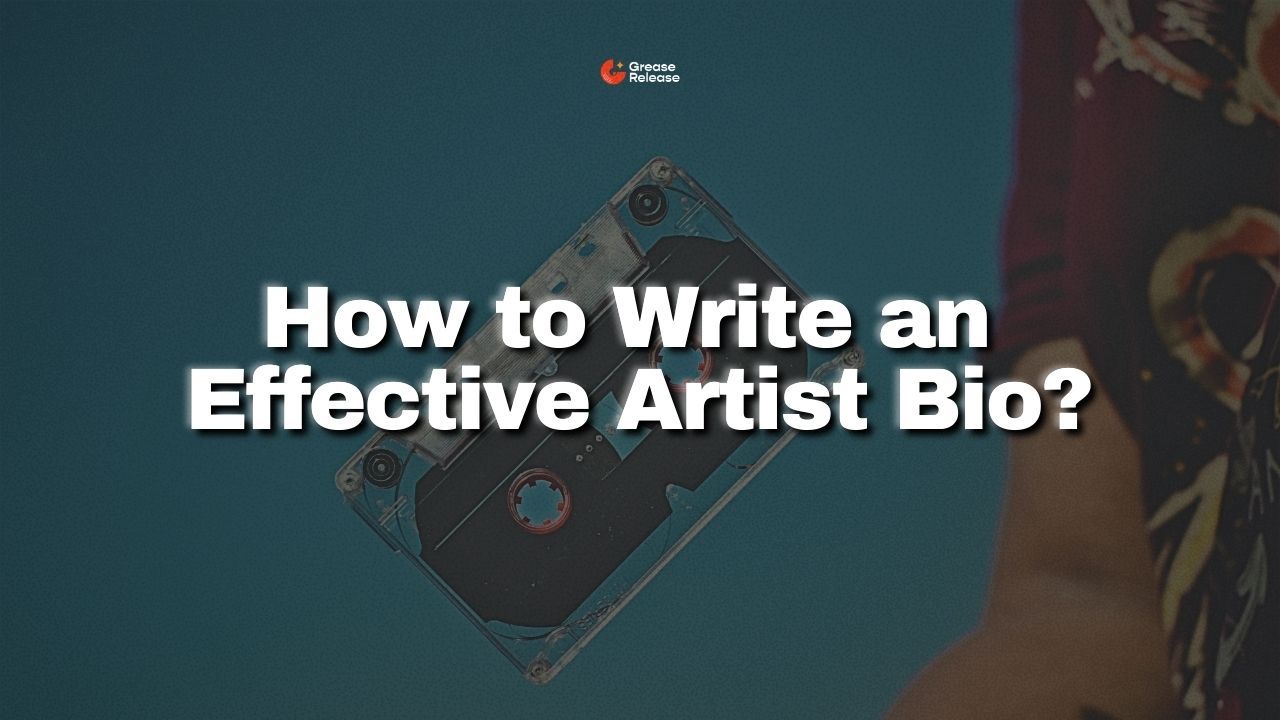
How To Get a Record Label Deal
Mar 08, 2024How to get signed to a record label
Securing a record label deal can be a turning point for you as an independent musician, providing not only financial backing but also vital marketing and distribution channels for your music. Researching and matching with a label that resonates with your artistic style and objectives is crucial. With the right approach, your unique sound could well be the next big thing shaking up the industry. This article aims to guide you, step by step, through the maze of the music industry.
From understanding the nuances of different record label companies to mastering the art of networking and making your demo stand out, we’ll dissect the components that can lead you towards that elusive record label signature. Whether you're weighing the merits of independent routes or considering big record label companies, let's embark on this informative journey together, keeping it light, insightful, and tailored for your musical ambitions.
Table of Contents:
- Understanding Different Types of Record Labels
- Networking and Building Relationships
- Preparing and Submitting Your Demo
- Dealing with Feedback and Rejection
- Conclusion
- FAQs
Understanding Different Types of Record Labels
Alright, let's break it down and see what's happening in the world of record labels. You've got your big fish, the major record labels like Sony Music Entertainment, Universal Music Group, and Warner Music Group. These are the multinational moguls with deep pockets for marketing and publicity, making them a powerhouse for any artist looking to hit it big on the global stage. They've got the connections and the clout to catapult you to stardom, but remember, with great power comes a more traditional contract structure.
Major Record Labels:
- Deep marketing resources
- Global distribution networks
- Traditional deal structures
On the flip side, you've got your indie scene. Independent record labels are like that cool indie coffee shop down the street – they march to the beat of their own drum, often offering sweeter, artist-friendly terms and a bigger slice of the royalty pie. They may not have the same level of resources, but they've got heart and a personal touch that can make all the difference.

Independent Record Labels
- Artist-friendly contracts
- Larger royalty shares
- Personalized approach
Now, for my fellow independent musicians weighing the options, let's do a quick comparison. Think of it like choosing between a bespoke suit or off-the-rack – indie labels offer a tailored fit to your creative style, while the majors are a bit more one-size-fits-all. Both have their perks, but it's all about what suits your vibe and career goals.
A Word to the Wise: The music industry isn't without its challenges. Take, for example, ‘Thirty Seconds to Mars' well-documented struggle with their former label, chronicled in the film "Artifact." The band clashed over creative control and fair compensation, highlighting the potential drawbacks of signing with a major label. Similarly, Taylor Swift's public battle to regain ownership of her master recordings serves as a reminder of the importance of understanding contract terms.

This shouldn't necessarily deter you from pursuing a major label deal. However, these stories emphasize the importance of going in with your eyes wide open, having strong legal representation, and understanding the potential roadblocks you might face.
Comparison
Major Labels: Global reach, structured deals, less creative control.
Independent Labels: More creative freedom, personalized support, and potentially better royalty terms.
Remember, record labels are the backbone of the music biz, providing everything from financial backing to artist development. But if you're feeling restricted in such cases and want to hold the reins, there's always the self-release route or even starting your vanity label. Just know that it's a road filled with both creative freedom and financial challenges.
Lastly, label services companies are the pick-and-mix candy store of the music world – they offer à la carte services that let you cherry-pick what you need while keeping your independence.
So, as you're researching labels, keep an eye out for those who are on the hunt for fresh talent and align with your musical mojo. It's not just about getting a deal; it's about getting the right deal. And always read the fine print, especially with those sneaky 360 deals that want a piece of all your revenue streams. Stay savvy, stay you, and let's find that label that'll be the pathway to your success in the industry.
Networking and Building Relationships
Ready to mingle in the music biz? Here’s your backstage pass to a networking masterclass. Let’s dive in!
The Scouting Mission
Before you move onto the networking stage, you've got to know who’s who. Whip out your detective hat and use tools like Hunter.io to track down the A&R honcho or the label head honcho’s contact info. A little social media sleuthing, with the help of plain old Google and Reddit, and your connections can open doors you didn’t even know existed. Start by finding the right people to connect with.
While Reddit can be a treasure trove of information and opinions on record deals, remember that the folks commenting might not always be industry professionals. Use it as a starting point for further research and to get a sense of general experiences and opinions, but don't rely solely on anonymous comments to make crucial decisions about your music career.
The Art of Networking
- Online: Social media is your 24/7 networking gig. Slide into those DMs, tweet your heart out, and make LinkedIn your digital handshake. It’s all about engaging in meaningful chit-chat and showing genuine interest.
- Offline: Hit up those music events, conferences, and gigs. Your mission? Network with purpose. Rub elbows with industry pros, and don’t forget to follow up after you’ve dazzled them with your charm. Here are a few examples of such conferences:
- SXSW (South by Southwest): This massive Austin, Texas event isn't just about film anymore. It's a hotbed for music discovery, with showcases, panels, and networking opportunities galore.
- A2IM Indie Week: Held annually in New York City, A2IM Indie Week is a haven for independent music, attracting labels, distributors, and tastemakers from around the globe.
- Miami Music Week: Immerse yourself in the vibrant music scene of Miami during this week-long extravaganza of concerts, parties, and industry conferences. It's a fantastic opportunity to connect with people in the Latin music industry and beyond.

The Feedback Loop
Keep those tunes coming and seek out professional feedback. This isn’t just about polishing your tracks; it’s about showing you’re open to growth and serious about your craft. Remember, every critique is a step towards your Grammy speech.
We at GreaseRelease, also accept submissions onto our large network of playlists from all around the globe. We also provide extensive and constructive feedback pertaining various parameters on the music submitted to us. Head on over to our website to know more.
Now, let’s talk strategy. When you’re at these shindigs, have your elevator pitch ready—short, sweet, and with a hook that would make a pop song jealous. Your goals? Crystal clear. You’re there to connect, not to collect. And always, always keep it respectful and real.
Networking is a marathon, not a sprint. It’s about planting seeds and nurturing those relationships. So, keep your cool, be patient, and watch as your network blossoms into opportunities that could lead to that dream record label deal. Remember, independent musicians like you are the heart and soul of the industry. With a little grit and a lot of networking, you’ll find your spotlight.
Preparing and Submitting Your Demo
Alright, you rockstar, it’s demo time! This is pretty much your business card. So let’s ensure it’s as slick as your stage persona. Here’s how to prep and pitch that demo to the record label scouts, making sure every note resonates with purpose and passion.
Demo Quality is King:
Polish Your Tracks: Make sure your songs are mixed and mastered to perfection. You want to hit the record label with your best shot, so seek feedback from experienced music producers to fine-tune your sound.
Proper Formatting: Export your tracks in WAV format at 44.1kHz or 48kHz. (the preferred choice for most labels) and tag them with your artist name, track name, and contact info. It’s like putting your name on your homework; make it easy for them to see who's the next big thing.
Follow The Label’s Script
Submission Guidelines: Every record label has its specifics when it comes to demos. Follow their demo policy to the letter, including mastering preferences and artist details.
Pro Tip: While following submission guidelines is crucial, consider taking an extra step to personalize your approach. Utilize platforms like LinkedIn to research the A&R executives at your target labels. Learn about their areas of interest and the types of artists they typically work with. Tailor your submission materials, including a cover letter, to highlight how your music aligns with their taste and the label's roster. This extra effort can make your application stand out from the crowd.

Personalize Your Pitch
Craft a Custom Note: Don’t just blast your demo into the void. Personalize your approach and share why you’re head over heels for this label. It’s like asking someone out on a date; make them feel special.
Your Music, Your Story: Describe your sound and what drives it. Highlight the tracks that you’re most proud of and share the stories behind them. This personal touch can make all the difference.
The Waiting Game
Patience Pays Off: Keep at it, even if the silence is deafening. Your persistence could pay off when your email lands in front of the right person at the right time, potentially changing your career trajectory.
Now, let’s not forget the golden rule: avoid comparing yourself to others. You’re the only you there is, and that’s your superpower. Focus on your unique sound and identity. And remember, whether you're an independent musician or dreaming of big record label companies, it’s about finding the right fit. So, keep strumming, keep singing, and let's get those demos out there!
Dealing with Feedback and Rejection
Hey there, fellow musician! So, you've hit a bump on your road with some feedback or rejection from a record label? No sweat! Let's tune into how you can turn that negative feedback, constructively, into a comeback.
Keep the Music Playing
Stay Active: Keep releasing new tunes, light up your social media with updates, and get that crowd roaring at live gigs. It's all about keeping the momentum going and showing record labels that you're a force to be reckoned with.

Sharpen Your Skills: Take a leaf out of successful bands' books. Refine your music writing, and composition skills to make music that resonates with your audience. It's like levelling up in a game, the more you play, the better you get.
Feedback Finesse: Embrace rejection as a chance to grow. Analyze feedback with an objective ear and fine-tune your work. It's like getting a personal trainer for your music; tough love that makes you stronger.
Remember, the difference between a one-hit-wonder and a legend is how they handle the highs and lows. So keep your head high, your guitar tuned, and your passion burning!
Conclusion
Reflecting on the journey from understanding different record label dynamics to perfecting your pitch, it's clear that each step is crucial in shaping your future. Independent musicians bear the advantage of greater creative control and potentially more favourable contract terms with indie labels, while major label contracts offer unmatched global exposure, albeit often with more stringent terms.
Ultimately, it isn't just about getting signed; it's about partnering with a record label that resonates with your vision and amplifies your voice. For those ready to carve out their path in the industry, the best starting point is often to learn from others, so don't hesitate to discover more about record label deals and fostering career growth.
FAQs
1. What is the minimum number of followers required to secure a record label contract?
To be considered for a major label deal, aspiring artists should aim to have between 20,000 to 100,000 followers on social media. Many artists choose to employ social media management services to help grow their following while they focus on creating music.
2. Is it difficult to obtain a record label contract?
Securing a contract with a record label is challenging and demands a mix of talent, hard work, and persistence. Success in the music industry often comes with time and continuous effort, so it's important to maintain a positive attitude and keep striving even if progress seems slow.
3. What are some effective strategies for contacting record labels?
There are five primary ways to submit your music to a record label:
- Online Submission Platforms: Use submission forms on record labels' websites to send your music, biography, and contact details.
- Social Media: Engage with labels through their social media accounts.
- Networking: Build relationships within the music industry.
- Music Promotion Services: Utilize services that specialize in promoting music to labels.
- Direct Contact: Reach out directly to the label through email or other direct communication methods.
4. Do artists have to pay to be signed by a record label?
No, artists are not required to pay to be signed by a record label. The artist contributes their musical talent and possibly their original compositions, while the record label is responsible for financing the production and distribution of the music.
If you have any more questions, feel free to DM us on Instagram at @greaserelease.
We at GreaseRelease, have a bunch of curators on our network who are looking for new & exciting music to push on their massive playlists. If you make music and want to reach a wider audience, check out our submission platform and get a chance to reach millions of listeners! Submit your tracks now!
Studies show that 80% of musicians constantly feel overwhelmed and we want to take that load off by helping you stay organized that's why, my team and I created the ProdPro 2.0
The ProdPro 2.0 is the ultimate organization tool built by and for musicians. Click here to learn more.
Don't miss my newsletter!
Join me on a music entrepreneurship journey with new tips and tricks delivered straight to your inbox.
We hate SPAM. We will never sell your information, for any reason.




